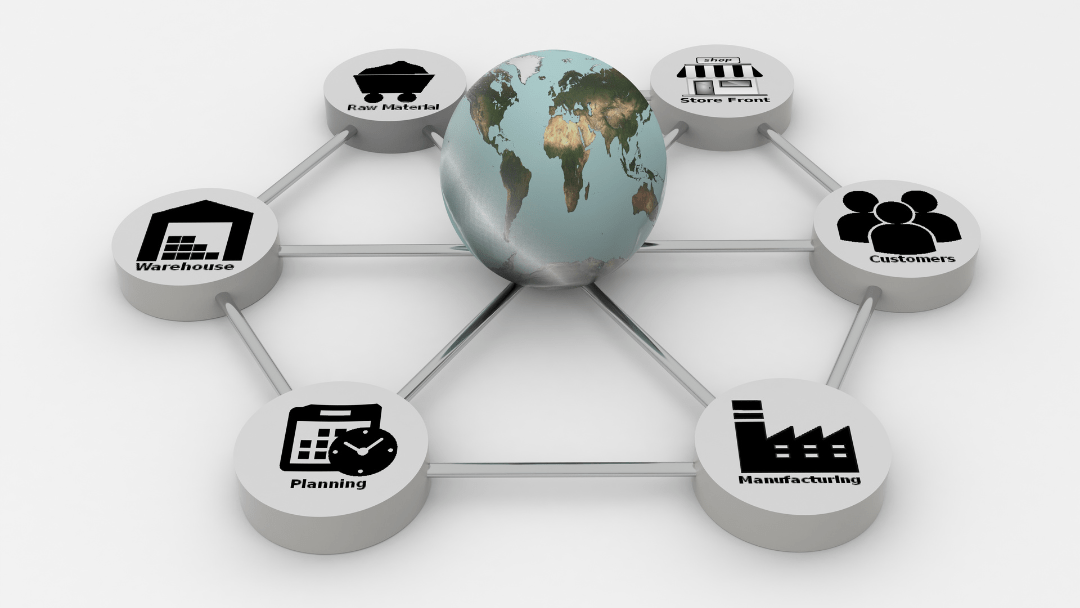The Strategic Advantage of AI in Supply Chain Risk Management

Niall Gallacher
In today’s increasingly complex and interconnected global economy, supply chains are more vulnerable than ever to a wide array of risks. From geopolitical tensions and natural disasters to sudden shifts in consumer demand, the challenges are diverse and often unpredictable. The COVID-19 pandemic starkly highlighted these vulnerabilities, as companies worldwide grappled with disrupted supply chains, leading to unprecedented delays and losses. Against this backdrop, Artificial Intelligence (AI) is emerging as a pivotal tool for companies looking to not only manage but strategically mitigate supply chain risks.
Proactive Risk Identification and Prediction
One of the most profound benefits of AI in supply chain risk management is its ability to proactively identify and predict risks. Traditional risk management strategies often rely on historical data and experience, which, while valuable, can be insufficient in a rapidly changing world. AI, on the other hand, leverages real-time data and advanced algorithms to detect patterns and signals that may indicate potential disruptions.
Machine learning models, for example, can analyse vast amounts of data from various sources—weather reports, news articles, social media, etc.—to forecast risks such as natural disasters, political unrest, or market fluctuations. By anticipating these events, companies can implement pre-emptive measures, such as rerouting shipments, adjusting inventory levels, etc. thereby minimizing potential impacts.
Enhanced Supply Chain Visibility
Visibility across the supply chain is critical for effective risk management. Yet, many companies struggle with fragmented information and operations which rely on siloed data that obscure their view of the entire supply chain network. AI-driven platforms can integrate data from disparate sources, providing a comprehensive, real-time view of the supply chain. This enhanced visibility allows companies to monitor key metrics and performance indicators across suppliers, logistics providers, and distribution channels.
For instance, AI can track the performance of suppliers in real time, identifying any deviations from expected quality standards or delivery times. This enables companies to quickly address issues before they escalate into major disruptions. Moreover, AI can help in mapping out the entire supply chain, identifying critical nodes and potential points of failure, which are essential for developing robust contingency plans.
Dynamic Risk Response and Mitigation
The dynamic nature of today’s supply chains demands a more agile approach to risk management. AI excels in this area by enabling real-time decision-making and response. When a disruption occurs—whether it’s a delay at a port, a sudden surge in demand, or a production shutdown—AI systems can rapidly analyse the situation and recommend the best course of action.
These systems can run simulations and scenario analysis, weighing different strategies’ potential outcomes and helping decision-makers choose the most effective option. For example, if a key supplier fails to deliver, AI can quickly identify alternative suppliers, evaluate the associated risks and costs, and suggest the optimal solution to keep production on track. This capability not only mitigates the immediate impact of disruptions but also enhances the overall resilience of the supply chain.

Improved Supplier Risk Management
Supplier risk is a critical aspect of supply chain risk management. Traditional methods of assessing supplier risk, such as financial audits or periodic assessments, often fail to capture real-time changes in a supplier’s risk profile. AI can revolutionize this process by continuously monitoring suppliers’ financial health, geopolitical exposure, and operational performance.
Moreover, AI can continuously ‘adjust’ the acceptable levels of supply chain risk in line with varying order quantities, cumulative spend, or even as the categories being supplied evolve and grow.
Natural Language Processing (NLP) algorithms can analyse news articles, financial reports, and social media to detect early warning signs of supplier distress. Additionally, AI can assess a supplier’s entire ecosystem, including their suppliers and partners, to identify potential risks that could cascade through the supply chain. This continuous monitoring allows companies to take proactive steps, such as diversifying their supplier base or renegotiating contracts, to mitigate supplier-related risks.
Cost Efficiency and Strategic Decision-Making
Beyond risk mitigation, AI offers significant cost efficiency benefits. By optimising inventory levels, improving demand forecasting, and reducing the need for emergency interventions, AI-driven risk management can lower operational costs. Indeed, AI’s ability to process and analyse vast amounts of data enables more informed strategic decision-making by operational staff.
Executives can leverage AI insights to design more resilient supply chains that are not only capable of withstanding disruptions but also positioned to capitalize on emerging opportunities. For instance, AI can identify trends and shifts in consumer behaviour, allowing companies to adjust their supply chains in anticipation of continuously evolving market demands.
Conclusion: AI as a Competitive Differentiator
In the competitive landscape of global business, supply chain resilience is increasingly becoming a key differentiator. Companies that effectively integrate AI into their supply chain risk management strategies are better positioned to navigate disruptions, protect their bottom lines, and maintain customer trust. As AI continues to evolve, its role in supply chain risk management will only grow more critical, offering forward-thinking companies a strategic advantage in an uncertain world.
Incorporating AI into supply chain risk management is no longer just a technological upgrade—it is a strategic imperative that can drive long-term business success.
Find out more About Cyferd
New York
Americas Tower
1177 6th Avenue
5th Floor
New York
NY 10036
London
2nd Floor,
Berkeley Square House,
Berkeley Square,
London W1J 6BD
